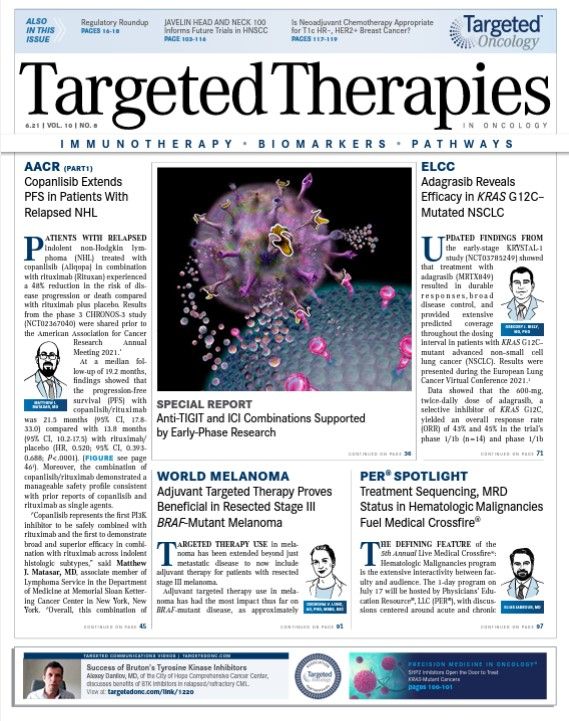Good News: ODAC’s Approvals Are Based on Subjective Decisions
Arjun V. Balar, MD, co-physician editor in chief of Targeted Therapies in Oncology, discusses the proceedings of the 3-day Oncologic Drug Advisory Committee meeting on accelerated approvals for PD-1/PD-L1 antibodies in solid tumor indications that failed to show confirmatory benefit.
Arjun V. Balar, MD

During a whirlwind 3 days in April 2021, multiple Oncologic Drug Advisory Committee (ODAC) meetings were held by the FDA, the pharmaceutical industry, and panels representing experts, patients, and consumer advocates to determine the fate of several accelerated approvals for PD-1/ PD-L1 antibodies across solid tumor indications, including advanced triple-negative breast, bladder, gastric, and hepatocellular cancers. I had the privilege of participating in support of defending the indication for pembrolizumab (Keytruda) in advanced urothelial cancer in the first line for patients who are cisplatin ineligible. I also observed the atezolizumab (Tecentriq) arguments. This particular indication, an area to which I’ve dedicated much of my clinical and research career, felt a bit personal to me. Rescinding this indication could mean that the most elderly and frail of patients who wish to receive immunotherapy would now be required to first receive platinum-based chemotherapy, a prospect that could prove to be too dangerous for some patients.
The approval of immunotherapy in the first line in 2017 undoubtedly improved the lives of countless patients—I’ve seen it. So, yes, preserving access for those who cannot safely receive chemotherapy was important to me.
Regardless of the panel’s decision, the experience was incredible. The preparation, which lasted months, was exhaustive and detailed, and every perspective was considered to maintain the indication.
The reason for the ODAC meeting to be held in the first place was that the confirmatory studies required by the FDA to confirm the clinical benefit did not meet their prespecified end points. Thus, these accelerated approvals, first issued on the basis of single-arm clinical trials in indications with high unmet medical need, were “dangling”—hanging freely in the wind with an unknown fate. The data from the confirmatory studies were less than convincing in some instances, making the subsequent arguments all the more challenging. However, for a subset of patients for whom chemotherapy is not a safe option, or for patients who refuse chemotherapy, immunotherapy is the only option—this was the most compelling argument we could make.
In the end, both atezolizumab and pembrolizumab received favorable decisions by the ODAC panel. Strikingly, arguments by Merck and Genentech and the justifications for the votes by the panel were quite varied and nuanced. I learned that this process, much like patient care, is incredibly subjective and individualized and not as rigid as clinical trial interpretation can be sometimes. And for that I’m grateful.

Survivorship Care Promotes Evidence-Based Approaches for Quality of Life and Beyond
March 21st 2025Frank J. Penedo, PhD, explains the challenges of survivorship care for patients with cancer and how he implements programs to support patients’ emotional, physical, and practical needs.
Read More